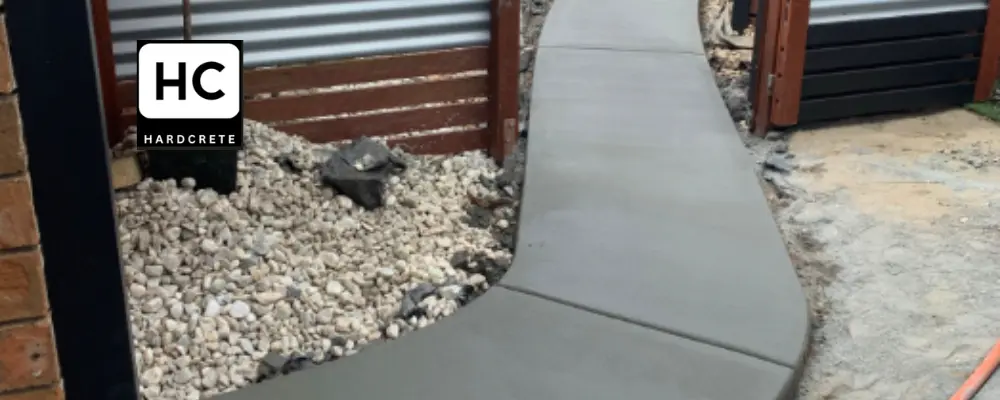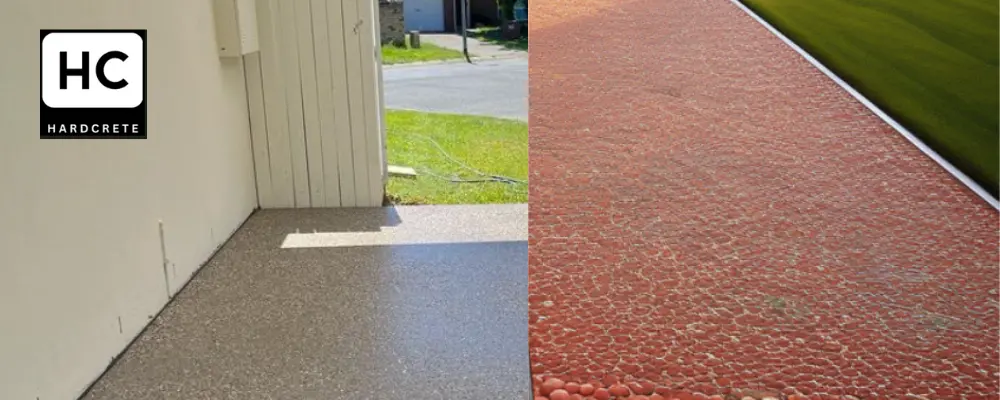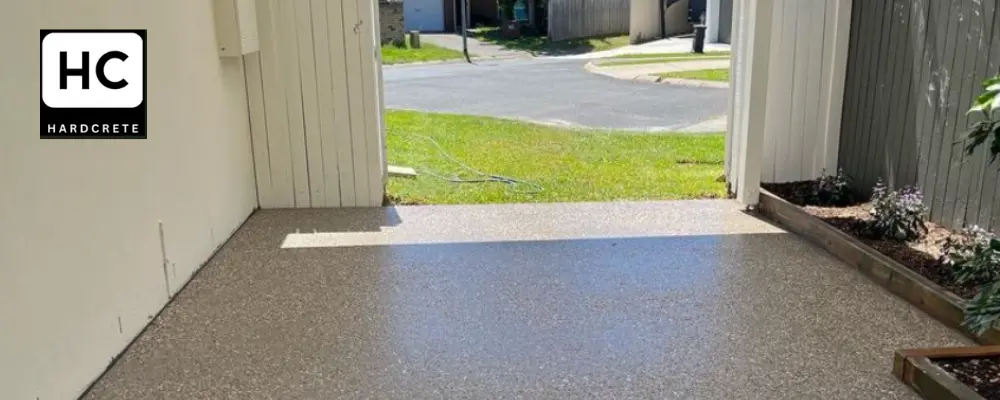Key Highlights
- Asphalt is more affordable and easier to install, but requires more maintenance, while concrete has more design options and better durability, but is more expensive.
- Concrete driveways can last up to 50 years, while asphalt driveways have a lifespan of up to 30 years.
- Concrete is more durable than asphalt, but asphalt is more suitable for colder climates and can withstand high traffic volumes.
- Asphalt driveways require more maintenance, including regular sealcoating, while concrete driveways need relatively little maintenance.
- Asphalt driveways are more cost-effective upfront, but concrete driveways have lower long-term maintenance costs.
- Concrete driveways offer more customization options, including stamped designs and color options.

Introduction
Are you considering installing a new driveway? If so, you’re likely faced with the choice between concrete and asphalt. Both materials have their own advantages and disadvantages, and it’s important to understand the key differences before making a decision.
In this ultimate guide, we will compare concrete and asphalt driveways in terms of durability, maintenance, cost, appearance, and more. By the end of this guide, you will have a clear understanding of which option is right for your home.
A driveway is a significant investment, and it’s important to choose a material that not only suits your budget but also meets your aesthetic preferences and long-term needs. So, let’s dive in and explore the differences between concrete and asphalt driveways.
Understanding the Basics of Concrete x Asphalt
Before we delve into the details, let’s start with a basic understanding of concrete and asphalt driveways. A concrete driveway is made of a mixture of aggregates, cement, and water, which is poured into forms and finished with tints, stains, or engravings. Asphalt, on the other hand, is a black, sticky paving material made from aggregates and a petroleum-based binder. It is heated to make it pliable and easy to roll out, and hardens as it cools.
Both concrete and asphalt driveways have their own unique characteristics and properties, which we will explore in more detail.
Composition and Material Differences
The composition of concrete and asphalt driveways differs significantly. Concrete driveways are made of a mixture of aggregates, cement, and water. Aggregates can include crushed stone, gravel, or sand, while cement acts as a binding agent. The combination of these materials creates a solid and durable surface.
On the other hand, asphalt driveways are made from aggregates and a petroleum-based binder. The aggregates used in asphalt driveways are typically crushed stone or sand, while the binder is a byproduct of the petroleum refining process. This binder, known as bitumen, gives asphalt its black color and sticky consistency.
The difference in composition directly affects the properties of the two materials. Concrete driveways are known for their strength and durability, while asphalt driveways offer greater flexibility and are less prone to cracking.
Initial Installation Process Overview
The process of installing a driveway varies depending on the material chosen. For concrete driveways, the installation process typically involves excavating the area, creating a solid foundation, and pouring the concrete mixture into forms. Once the concrete has cured, it is finished with tints, stains, or engravings to achieve the desired aesthetic.
In contrast, the installation process for asphalt driveways is relatively simpler. It involves preparing the site, laying a gravel base, and then pouring the hot asphalt mixture onto the prepared surface. The asphalt is then compacted, leveled, and left to cool and harden.
Both installation processes require professional expertise and equipment. Hiring a professional contractor is recommended to ensure proper installation and a long-lasting driveway.
Durability and Longevity Comparison
When it comes to durability and longevity, concrete driveways have the edge over asphalt driveways. Concrete driveways can last up to 50 years with proper maintenance, while asphalt driveways have a lifespan of around 30 years.
Concrete is known for its strength and ability to withstand heavy loads. It has a higher compressive strength compared to asphalt, with the ability to withstand up to 6,000 pounds per square inch (PSI) of pressure. However, it is important to note that freezing temperatures and high traffic rates can diminish the strength of concrete driveways.
On the other hand, asphalt driveways are more flexible and can better withstand temperature fluctuations. They are more suitable for colder climates, as they are less prone to cracking in freezing temperatures. However, they are sensitive to UV exposure and can soften and deform in hot weather.
How Weather Affects Each Material
Weather conditions can have a significant impact on the performance of concrete and asphalt driveways. Concrete driveways are more susceptible to weathering in extreme temperature conditions. In colder climates, the expansion and contraction of moisture within the concrete can cause cracking and heaving. Additives, proper drainage, and insulation can help minimize these issues, but they do not eliminate the risk entirely.
Asphalt driveways, on the other hand, are more resilient to temperature fluctuations. They can withstand freezing temperatures without significant damage, making them a better option for colder climates. However, they are sensitive to UV exposure and high temperatures. In hot weather, the asphalt can soften and deform, leading to bumps and ruts in the surface.
Proper maintenance and regular inspections are essential to ensure the longevity and performance of both concrete and asphalt driveways in different weather conditions.
Lifespan and Sustainability Factors
When considering the lifespan and sustainability factors of concrete and asphalt driveways, several factors come into play. Concrete driveways have a longer lifespan compared to asphalt driveways, with a potential lifespan of up to 50 years. This is due to their greater durability and ability to withstand heavy loads.
In contrast, asphalt driveways have a lifespan of around 30 years. While they may not last as long as concrete driveways, they are still a durable option for most homeowners. Regular maintenance, such as sealcoating, can help extend the lifespan of both concrete and asphalt driveways.
In terms of sustainability, both concrete and asphalt driveways have their own environmental impacts. The production of asphalt involves petroleum products, which are non-renewable resources. Concrete, on the other hand, has a lower carbon footprint and can be made with recycled materials. It is important to consider the environmental impact of both materials when making a decision.
Maintenance and Upkeep Requirements
Maintaining and properly caring for your driveway is essential to ensure its longevity and performance. Both concrete and asphalt driveways have different maintenance and upkeep requirements.
Concrete driveways require relatively little maintenance. Regular cleaning and the application of a concrete sealant every five to 10 years can help preserve the finish and protect against stains and damage. Minor cracks and stains can be repaired with patching materials or epoxy injections.
On the other hand, asphalt driveways require more regular maintenance. Sealcoating should be applied every three to five years to protect the surface from UV rays and extend its life. Cracks and potholes can be filled with asphalt sealant or resurfaced with new asphalt.
Routine Maintenance for Asphalt and Concrete
Routine maintenance is essential to keep your driveway in good condition. For concrete driveways, regular cleaning using a pressure washer on a low setting is recommended. Applying a concrete sealant every five to 10 years can help protect against stains and damage.
Asphalt driveways require more frequent maintenance. Regularly inspecting the surface for cracks and potholes is important. Applying a sealcoating every three to five years will help protect the surface from UV rays and prevent damage.
In both cases, it is important to address minor issues promptly to prevent them from becoming major problems. Patching materials or epoxy injections can be used to repair minor cracks and stains in concrete driveways. Asphalt driveways can be repaired by filling cracks and potholes with asphalt sealant or resurfacing with new asphalt.
Repair Scenarios and Solutions
Over time, driveways may develop issues that require repair. In concrete driveways, common repair scenarios include oil stains, minor cracks, and surface damage. Oil stains can be removed using a degreaser, while minor cracks can be repaired using patching materials or epoxy injections. Surface damage, such as chipping or spalling, can be addressed by resurfacing the concrete.
Asphalt driveways may develop potholes or cracks due to heavy traffic or weather conditions. Potholes can be filled with asphalt sealant, while cracks can be repaired using crack sealant or resurfacing with new asphalt.
Addressing repairs promptly is important to prevent further damage and ensure the longevity of your driveway. It is recommended to consult with a professional contractor for larger repairs or if you are unsure of the best approach.
Cost Analysis: Upfront and Long-Term
The cost is an important factor to consider when choosing between concrete and asphalt driveways. Both materials have different upfront and long-term costs associated with their installation and maintenance.
In terms of upfront costs, asphalt driveways are more cost-effective. The average cost to install an asphalt driveway is around $6 to $9 per square foot, while concrete driveways can cost between $8 to $15 per square foot. However, additional customization options for concrete, such as stamped designs or color additives, can increase the overall cost.
When considering long-term costs, concrete driveways have lower maintenance needs and longer lifespans compared to asphalt driveways. While asphalt driveways have lower upfront costs, they require more regular maintenance, such as sealcoating, which increases the long-term expenses.
Initial Installation Costs
The initial installation costs of concrete and asphalt driveways differ based on several factors. Asphalt driveways are generally more affordable upfront, with an average cost of $6 to $9 per square foot. This includes the cost of materials and labor.
Concrete driveways, on the other hand, have a higher initial cost, averaging between $8 to $15 per square foot, including materials and labor. The cost can vary based on the complexity of the design and any additional customization options.
It is important to consider your budget and long-term maintenance needs when deciding between the two. While asphalt driveways may have a lower initial cost, it is essential to factor in the potential long-term maintenance expenses.
Long-Term Financial Considerations
When considering the long-term financial considerations of concrete and asphalt driveways, several factors come into play. Concrete driveways have a longer lifespan and lower maintenance needs compared to asphalt driveways. This can result in lower long-term expenses, as there is less need for regular repairs and maintenance.
While asphalt driveways may have lower upfront costs, their shorter lifespan and higher maintenance requirements can result in higher long-term expenses. Regular sealcoating and repairs can add up over time.
It is important to weigh the initial cost against the long-term financial implications when making a decision. Concrete driveways may be a better option for those looking for a more durable and cost-effective solution in the long run.
Aesthetic and Design Options
The aesthetic and design options are important considerations when choosing between concrete and asphalt driveways. Concrete driveways offer more customization options, allowing homeowners to achieve the desired look and feel for their driveways.
With concrete, homeowners can choose from a variety of stamping, staining, or engraving options to create a unique and personalized design. Color additives can also be used to achieve specific color tones.
On the other hand, asphalt driveways have limited customization options. While it is possible to create a colorful surface by using a clear binder and color additive, the design options are more limited compared to concrete.
Customization and Styling for Homes
Concrete driveways offer homeowners more opportunities for customization and styling. With concrete, you can choose from various stamping patterns, stains, and engravings to create a unique and personalized look for your driveway. Whether you prefer a rustic cobblestone design or a sleek modern pattern, the options are endless.
The ability to customize the surface color and texture of a concrete driveway allows homeowners to match their driveway to the style and architecture of their home. You can choose from a range of colors and textures to complement the exterior of your home.
On the other hand, asphalt driveways have limited customization options. While it is possible to add color to the surface, the design options are more limited compared to concrete. Asphalt driveways are often chosen for their simplicity and ability to blend in with the surrounding landscape.
Color, Texture, and Finish Possibilities
Concrete driveways offer a wide range of possibilities when it comes to color, texture, and finish. With concrete, you have the flexibility to choose from a variety of colors to match your home’s exterior or create a unique look. Stains and tints can be applied to achieve specific color tones.
In terms of texture, concrete driveways can be finished to be smooth or textured, depending on your preference. Different textures can be achieved through techniques such as stamping or engraving, allowing you to create a surface that mimics the look of natural stone or other materials.
The finish of a concrete driveway can also be customized. Whether you prefer a glossy or matte finish, there are options available to achieve the desired look.
Environmental Impact and Eco-Friendliness
Considering the environmental impact and eco-friendliness of your driveway choice is important. Both concrete and asphalt driveways have their own environmental considerations.
Concrete driveways have a lower carbon footprint compared to asphalt driveways. Concrete can be made with recycled materials, and its production emits fewer volatile organic compounds (VOCs) compared to asphalt. Additionally, concrete is a recyclable material and can be crushed and reused for other projects.
On the other hand, asphalt production involves petroleum products, which are non-renewable resources. The production process can also result in crude oil and petroleum leaks that can harm the environment.
Recyclability and Sustainability of Materials
Concrete driveways are highly recyclable. When a concrete driveway reaches the end of its lifespan, it can be crushed and reused as a base material for new construction projects. This reduces the need for new materials and minimizes waste.
In recent years, there have been advancements in the development of sustainable concrete materials. These materials incorporate recycled materials, such as fly ash or slag, reducing the carbon footprint of the concrete.
Asphalt driveways, on the other hand, have limited recyclability options. While asphalt can be recycled, the process is more complex and less common compared to concrete recycling.
When considering the sustainability of your driveway choice, it is important to balance the environmental impact with your specific needs and budget.
Carbon Footprint Comparison
Concrete driveways generally have a lower carbon footprint compared to asphalt driveways. The production of concrete emits fewer volatile organic compounds (VOCs) compared to asphalt production. Additionally, the ability to incorporate recycled materials into concrete reduces the demand for new resources and minimizes waste.
Asphalt production involves petroleum products, which are non-renewable resources. The production process can result in crude oil and petroleum leaks, which have a negative impact on the environment.
While concrete driveways have a lower carbon footprint, it is important to note that both materials have their own environmental considerations. Proper maintenance and responsible use of resources can help minimize the environmental impact of your driveway choice.
Conclusion
In conclusion, when deciding between concrete and asphalt, it’s essential to consider factors like composition, durability, maintenance, cost, and environmental impact. Each material has its unique characteristics, benefits, and drawbacks that can influence your choice. Whether you prioritize longevity, customization options, or eco-friendliness, understanding the differences between concrete and asphalt will help you make an informed decision for your project. Take into account your specific needs and preferences to select the best option that aligns with your goals and budget. Making a well-informed choice ensures that your pavement serves its purpose effectively and enhances the overall aesthetics of your property.
Frequently Asked Questions
Which option is quicker to install?
The installation time for both concrete and asphalt driveways can vary depending on factors such as the size and complexity of the project. However, in general, asphalt driveways tend to be quicker to install compared to concrete driveways. The average installation time for a driveway is usually one to two days, but this can vary based on the specific circumstances of each project.
It is important to weigh the installation time against other factors, such as durability, maintenance, and long-term costs, when making a decision.
How can homeowners choose between concrete and asphalt?
Choosing between concrete and asphalt driveways ultimately depends on several factors, including budget, aesthetic preferences, climate, and long-term needs. Homeowners should consider the durability, maintenance requirements, cost, and customization options of each material before making a decision. Consulting with a professional contractor can also help homeowners choose the right material for their specific needs.




